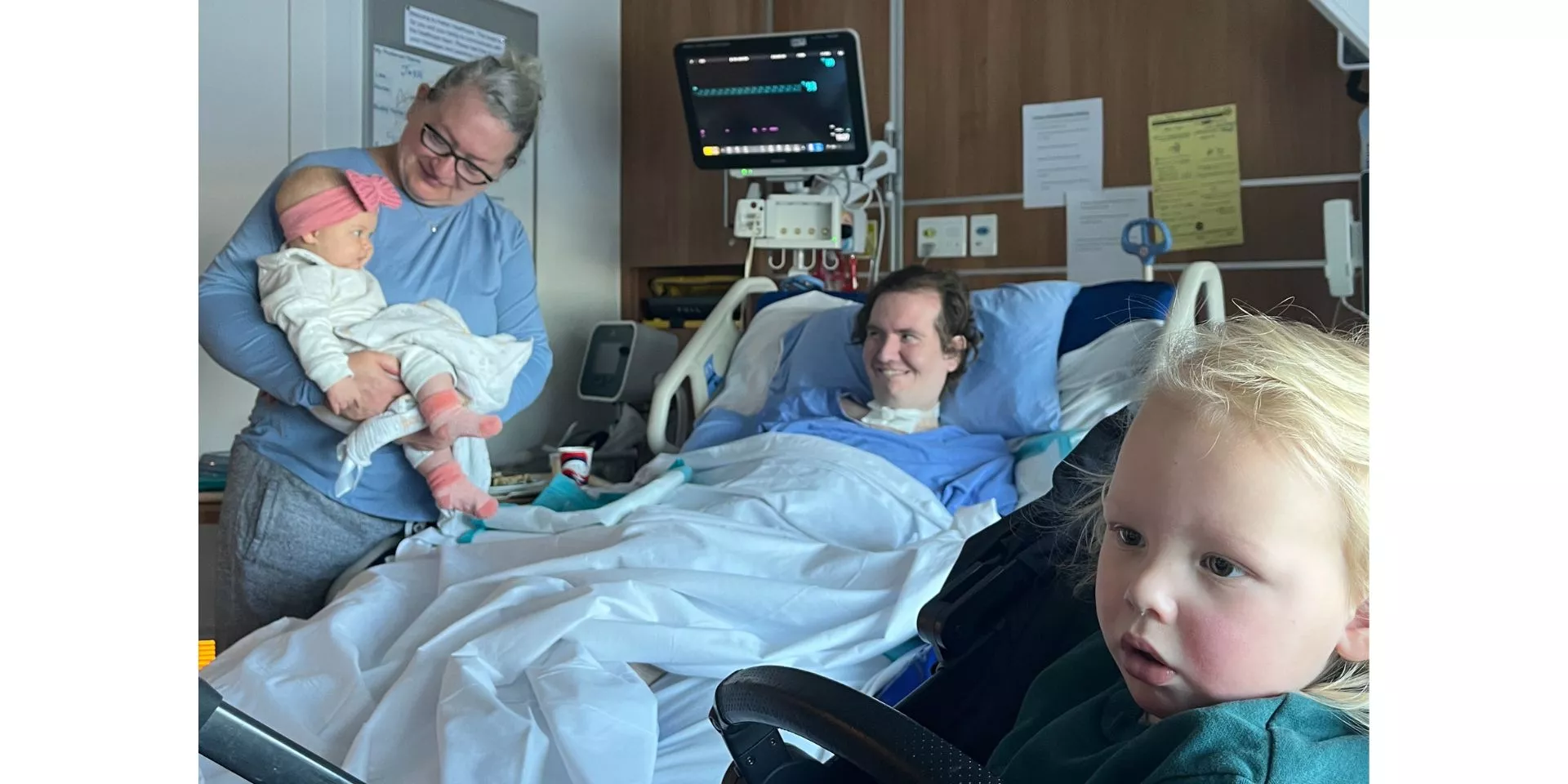It was the height of the pandemic when Josh Turner headed to his local hospital’s emergency department with wrenching pain throughout his abdomen. After six months searching for medical support, he had nowhere to turn and his body was crashing, hard.
Josh’s parents were called in to say their final goodbyes the very next day.
His mom, Colleen Petrick, found him in intensive care on life support. Josh was diagnosed with acute necrotizing pancreatitis; severe inflammation was destroying his pancreas. As a result, his organs were turning septic and failing.
Josh was placed on a ventilator because his lungs were too weak to function on their own. He became paralyzed from the neck down due to critical illness.
Josh’s care team persisted in draining the infection and his organs slowly recovered. Already he was outliving his doctors’ expectations. But they were sure Josh’s lungs had sustained irreparable damage and that he would need to be on a ventilator for the rest of his life.
Reason for optimism
Meanwhile, Colleen learned about Michael Garron Hospital’s specialized program for patients on mechanical ventilators who want to breathe on their own.
“At that point, I’d been told 20 times that my son shouldn’t be alive. I slept with my phone on every night, in case I got the call,” she says. “But I really pushed to get him to Michael Garron.”
On reviewing Josh’s case, Laura Istanboulian, PhD, Nurse Practitioner Director of our Provincial Prolonged- Ventilation Weaning Centre of Excellence, uncovered signs of progress.
“For nearly two years, we’d been going from hospital to hospital to see different specialists. One doctor said Josh was the sickest person he’d ever seen,” recalls Colleen. “When Laura reached out, I just bawled. I knew this was Josh’s chance at life.”
The right care at the right time
At Michael Garron Hospital, the team established a plan to help Josh wean from the ventilator. As part of this, a respirologist worked with him every day. A dietitian also helped transition Josh from his feeding tube, so he could eat and swallow independently.
“I stayed in the hospital on a pull-out bed in his room. The respirologist said my being there would make a difference in Josh getting better faster,” Colleen says. “They encouraged our family to be involved and made it easy for me.”
After just two-and-a-half weeks at our hospital, Josh was successfully weaned. “That first night when he was off the vent, I went to sleep with such joy. Pure joy and peace,” remembers Colleen.
Focus then shifted to nerve recovery and regaining motion. Over the course of treatment, Josh gradually started to move his arms and fingers again.
“Michael Garron Hospital changed Josh’s life,” says Colleen. “When I was feeling entirely discouraged, they gave me back my hope. They gave me back my son.”
A centre of excellence
Laura and her team are improving support for patients like Josh who have been in intensive care for extended periods. “Their needs are very different from other ICU patients,” she explains. “If they’re awake, they’re often confused with few ways of expressing their needs or asking questions. One of the ways we can help is by including their families as partners in care.”
For instance, when Josh arrived, “he could only give yes or no responses. Colleen understood how he was feeling. By trusting her, we got the cues we needed to help her son,” Laura continues.
“With this specialized care, training and processes are crucial. Nothing formal exists in Canada, so our team is leveraging our learnings and collaborating internationally to build what’s needed.”
With support from TD Bank Group, our frontline research in this area involves patients, their families and clinicians. It contributed to a nationwide study that led to Action 11, an evidence-based approach to caring for people with persistent critical illness, which is being implemented at our hospital and others in the U.K.
At Michael Garron Hospital we believe in our patients and our ability, even when hope seems lost. That’s what makes us the heart of the east. Please donate to ensure our hospital can care for patients like Josh when they need us most.
